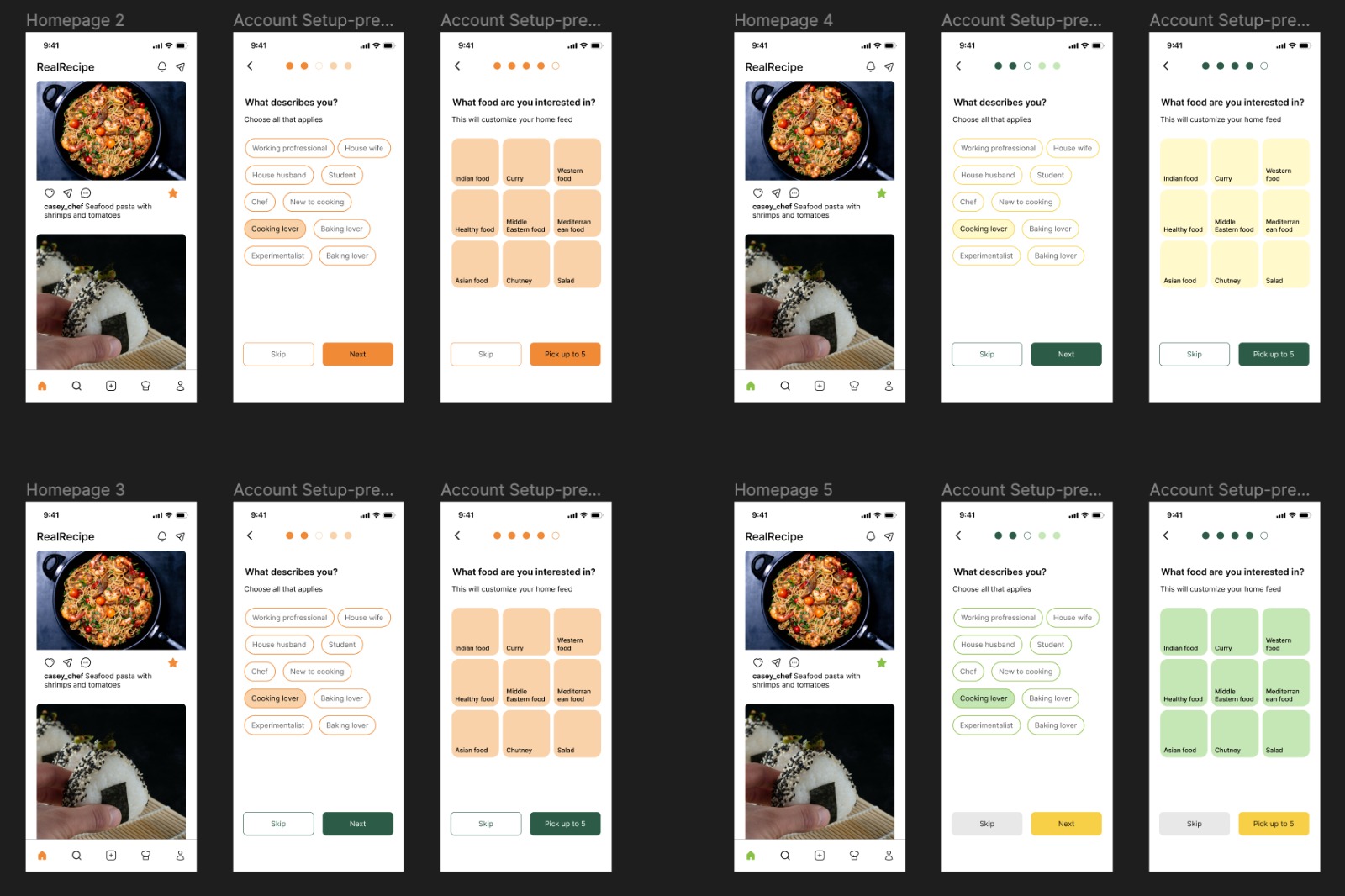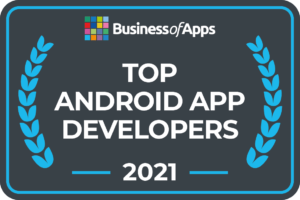Service
Hybrid App Development




Ready to Take Your App to the Next Level?
Get Hybrid App Development Services with High-Performance
Build high-performance, scalable, and future-ready apps with our hybrid app development services. We deliver cost-effective, cross-platform solutions that maximize reach and user engagement. Our hybrid app developers use modern technologies like AI/ML, Blockchain, and IoT to develop custom hybrid apps that meet your business goals.

Overcoming Your Biggest Business Challenges.
We’ve helped hundreds of businesses overcome these common obstacles and transform them into opportunities for growth.
Inconsistent Revenue Growth
Unpredictable revenue makes planning impossible and keeps you in constant survival mode rather than strategic growth.
Inefficient Operations
Manual processes and disconnected systems waste resources and prevent your team from focusing on high-value activities.
Poor Customer Retention
Constantly replacing lost customers drains resources and prevents sustainable growth, creating a cycle of acquisition dependency.
Predictable Growth System
Our proprietary revenue optimization framework creates consistent, predictable growth you can build your business around.
Streamlined Operations
Our efficiency experts identify and eliminate operational bottlenecks, creating automated workflows that scale with your business.
Loyalty Architecture
Our customer experience framework creates loyal advocates who stay longer, spend more, and actively refer new business.
We offer On Demand hybrid application development services
We offer a wide variety of services in cross-platform app development. Our aim lies in impressing users with quality and technologically salient apps while ensuring that our clients receive the best digital solutions. Our talented hybrid app developers can provide you with:
Hybrid App Development Consultation
Our experts analyze your goals, tech stack, and market needs to craft a strategic roadmap. We align hybrid frameworks (like React Native or Flutter) with your budget, timeline, and scalability demands.
Custom Hybrid App Solutions
We provide custom hybrid apps to solve unique business challenges. From eCommerce to enterprise tools, we integrate advanced features (offline sync, AI, IoT) while ensuring seamless performance across platforms.
UI/UX Design and Prototyping
As a leading hybrid mobile app development company, we design interfaces that drive engagement. We prototype intuitive designs, test usability, and refine workflows to ensure your app delivers frictionless experiences on iOS, Android, and web.
Cross-Platform App Development
Build once, deploy everywhere. Our single-codebase approach reduces costs and accelerates hybrid app development without compromising on native-like performance or design consistency.
Hybrid App Modernization Services
We revitalize legacy hybrid apps with modern frameworks, cloud transformation, and API upgrades. Our hybrid app developers enhance performance, security, and scalability while retaining core functionalities.
Hybrid App Migration Services
Our hybrid app experts are experts in migrating native or web apps to hybrid platforms seamlessly. We ensure zero data loss, optimize codebases, and future-proof your app for evolving user needs.
Hybrid App Integration Services
Hire hybrid app developers to connect your app with third-party APIs, payment gateways, CRMs, or analytics tools. We ensure secure, real-time data flow to streamline operations.
Hybrid App Testing and QA
Our professional QA testers perform rigorous security testing across devices, OS versions, and networks. We identify bugs, optimize load times, and ensure compliance with industry standards (GDPR, ADA).
Hybrid App Maintenance & Support
As a leading hybrid app development company, we offer proactive updates, performance monitoring, and 24/7 technical support. We keep your app secure, scalable, and aligned with market trends.
Benefits Of Hybrid App Development
At STABLX Technologies, we’re your trusted partners in harnessing the potential of Hybrid App development for all platform. Our comprehensive range of services is designed to drive business growth and deliver exceptional results.
Accelerated Development
Hybrid application development services are sought after for their faster development cycles and GTM. Developers need to create a single codebase to reach users on multiple platforms without massive coding and maintenance efforts required in the case of Native development.
Cross-platform Compatibility
Hybrid apps use web technologies wrapped in a native shell, our cross-platform development approach enables apps to access device-specific features and align development efforts irrespective of the device or platforms users are on.
Scalabality
The ease of maintaining a single codebase across platforms, native APIs, and popular web technologies for accessing device functionality support business expansion through streamlined cross-platform development.
Cost-effective
Hybrid development helps you reach more users without having to invest and deploy platform-specific resources as in the case of Native apps.
Wider Reach
Hybrid apps help businesses target users of all operating systems using a single codebase, as opposed to Native apps which target users of one platform only at a time.
Simple Maintenance
A single codebase for multiple platforms simplifies maintenance as updates can be rolled out to all users at one go, as opposed to platform-specific maintenance.
Why Choose Stablx for Hybrid App Development?
Our in-house team of skilled and certified Hybrid app developers work with clients to build engaging and intuitive Hybrid applications that drive customer engagement. Our unique processes significantly improve time-to-market and reduce costs. In fact, our decisive Hybrid application development methodologies allow our clients to maximize their ROI and reduce overall development costs by over 40%.
As a renowned Hybrid mobile application development company, our team can work with various tools and frameworks such as React, Ionic, Phonegap, Sencha, Appcelerator, and Titanium. From conceptualization and coding to production and deployment, we have the capabilities, the people, and the processes to manage the entire Hybrid lifecycle for the benefit. If seeking a competitive edge, simply engage in conversation with our team.

Expertise in leading Hybrid frameworks
Choose Stablx for Hybrid app development and benefit from our expertise in leading Hybrid frameworks like React Native, Flutter, and Xamarin. With our team of skilled developers, one will receive cutting-edge solutions that perform optimally across various platforms, ensuring the app reaches a broader audience.
Cross-platform excellence
Experience seamless functionality and consistent user experiences across multiple devices and operating systems by opting for Kellton’s Cross-platform excellence in Hybrid app development. This approach saves time and resources while keeping the users engaged and satisfied with our user-centric designs.
User-centric design
Stablx prioritizes user experience in every app development project. With a focus on intuitive interfaces, captivating designs, and smooth navigation, the apps we create keep users engaged and satisfied.
Cost-effectiveness
Our Hybrid app development solutions offer a cost-effective alternative to native app development. By sharing a single codebase across platforms, businesses can significantly reduce development expenses without compromising on quality.
Scalability and robustness
We build Hybrid apps that are scalable and robust, capable of handling growing user bases and evolving business requirements. This flexibility ensures the app can adapt to changing demands without compromising performance.
Seamless integration capabilities
Our team possesses extensive experience in integrating Hybrid apps with various third-party APIs and systems. This ensures smooth interactions with existing software, enabling businesses to enhance productivity and streamlining operations.
What is Hybrid app development?
Hybrid apps are a mix of native and web-based applications. The application’s core is written with web technologies. We’ll go through mixed app development in detail in this article. When it comes to developing a new mobile application, you are often confronted with many alternatives and are unclear where to start. Is it the best option to design your app entirely with native solutions? Should your team focus solely on web-based development? What about some of the hybrid options that are currently available? These are just a few of the many questions that come up while deciding which course is best for your company. To begin, keep in mind that selecting the best solution for your next (or first) application is dependent on several aspects, including your budget, timeframe, team’s technical knowledge, and, finally, your target audience.
So, with that in mind, let’s take a look at the three main types of mobile app development and review some of the advantages and disadvantages of each. By the end of this post, you should have a better understanding of the options and choose the best one for your mobile app development needs. Let’s start by defining our genres. What is a Hybrid Mobile App, and how does it work?
This solution combines native and web solutions, hence the name hybrid. Web technologies (HTML, CSS, and JavaScript) are used to write the program’s core, then contained within a native application. These applications might have full access to the functionalities of the mobile device by using plugins. Let’s have a look at how everything comes together to obtain a better understanding of this strategy.
The heart of a hybrid mobile application is still an HTML, CSS, and JavaScript application. Instead of being displayed in the user’s browser, the app is executed from within a native application with its embedded browser that is completely hidden from the user. For example, an iOS application would use the WKWebView element to display our app, but an Android app would use the WebView component.
Using a solution like Apache Cordova (also known as PhoneGap) or Ionic’s Capacitor, this code is embedded into a native application wrapper. These methods produce a native shell application that is nothing more than the platform’s web view component, into which your web application will be loaded. As a result, the constraints of a web-only application are readily overcome, allowing your programme to compete in terms of features with native apps.
This option, however, has significant disadvantages. The UI library, like the web-only application solution, must be rebuilt. Here’s where Ionic, NativeScript, Xamarin, React Native, and other frameworks come in handy. All of these alternatives include sophisticated UI components that look and feel like their native counterparts, providing you with a complete set of building blocks for your programme.
The only other factor to consider is whether or not your app is still operating in the device’s native browser.
What is the definition of a web application?
For some people, the risk of having their software rejected by faceless app store censors is too significant.There have also been reports of top-tier apps breaking regulations and getting deleted from the app store, resulting in a revenue loss.
Progressive Web Applications (PWAs) were introduced by Google in 2017, allowing these sorts of applications to embrace more app-like features such as conventional app icons, push notifications, offline capabilities, and more. Microsoft recently adopted this technique, which made these types of apps first-class citizens in their app store. This technique appeals to some development teams because it allows them to quickly create an application from a single codebase that can be used on various platforms and updated with a new feature or bug repair by simply deploying to your server.
So, which option is best for your application? Unless you’re making a high-performance game or similar software, hybrid app development may be the best option because it allows for a faster development process, lower costs, and platform compatibility. While they do necessitate a little more knowledge to put the solution together and use a UI library to help with the appropriate display of your user interface, those issues are well-known and easily overcome with a suitable framework, such as Ionic.
How much does it cost to create a hybrid app?
Many factors influence the price, depending on the complexity of the app development, at 40$ per hour, the average cost will be: Simple App Development Cost – $40,000 to $60,000.
| App Type | Estimate Cost | Time (M) |
| Simple | $40K to $60K | 2-3 |
| Basic | $60K to $150K | 3-6 |
| Complex | from $300K | 9+ |
Types of Apps
| Type of complexity | Characteristics |
| Simple apps (2-3 Months) |
|
| Mid-level apps (3-5) |
|
| Complex apps (6-N) |
|
Frequently Asked Questions
The advantage of hybrid apps is that they are typically easier and faster to develop than native apps. They also require less maintenance. However, the speed of your hybrid app will depend entirely on the speed of the user’s browser. Ultimately this means hybrid apps will almost never perform as fast as a native app.
1. Gmail
2. Twitter
3. Instagram
Flutter has its programming language – Dart which is a combination of Java and Kotlin. It helps developers to build highly-productive apps with its single codebase for iOS and Android platforms. It has a different level of cross-platform ability which is unmatched with any other framework.
| Region | Hourly rate ($) |
| United States (USA) | 120-150 |
| United Kingdom (UK) | 100-120 |
| Australia | 100-120 |
| Western Europe | 80-100 |
| Eastern Europe | 30-50 |
| India | 20-30 |
Mobile App Development depends upon several factors (discussed above), including the choice of development platform, the location of the development team, the complexity of the mobile app and the scalability of the app. On average the hybrid app development cost should be $5000 – $1, 00,000.
We Are Recognized By
Stablx has earned the top spot for providing quality services on the most reputable platforms. We have created various applications and websites for well-known businesses to help them build an impressive brand identity.


5.0

5.0

5.0

5.0
Our Clients Simply love What We Do
Proud to serve as the innovation partner for industry leaders who have experienced our expertise and excellence firsthand.







Hybrid App Development Insights

EduWise (Global online learning provider)
Challenge: EduWise wanted to elevate remote learning for K-12 students in multiple countries, needing high-security

FitLife (Emerging health-tech brand)
Challenge: FitLife wanted to launch an AI-powered fitness app in just 60 days to capitalize

ShopLocal (Omnichannel retail platform for small businesses)
Challenge: Independent retailers struggled to adapt quickly to digital shopping during pandemic restrictions. ShopLocal aimed
Related Services
Discover the full suite of mobile expertise to power your digital growth.

Hybrid App Development
Cross-platform apps combining native features with web speed and flexibility, enabling rapid, scalable deployment across devices.

Android Development
Tailored Android applications engineered for broad reach, high performance, and seamless integration with Google services and features.

iOS Development
Premium iPhone, iPad, and wearable apps crafted for Apple’s unique ecosystem to deliver top-tier user experience and reliability.

Flutter Development
High-performance apps built with Google’s Flutter framework, offering beautiful, native-like experiences on both iOS and Android.

React Native Development
Fast cross-platform app development with Facebook’s React Native, delivering fluid user interfaces and efficient code reuse.
FAQs for Hybrid App Development Services
Here are the answers to most common questions.
Many factors influence the price, depending on the complexity of the app development, at 40$ per hour, the average cost will be: Simple App Development Cost – $40,000 to $60,000.
Mobile apps can enhance customers’ experiences and improve product and service marketing. When deciding whether to create an app, you should consider your goal, your target audience and their mobile usage, and your development strategy and budget.
Creating a website is often cheaper and takes less time than creating an app. However, an app can give your business unique advantages you simply can’t get from a mobile-friendly website.
A mobile responsive website should be considered your first step in developing a mobile web presence, whereas an app is useful for developing an application for a very specific purpose that cannot be effectively accomplished via a web browser.
- Protect your customers from competitors
- Provide More Value to Your Customers
- Build a Stronger Brand
- Improve Customer Loyalty
- Have a Competitive Edge in Your Niche
- Reach Higher Customer Engagement Level
- Build a Direct and Personalized Marketing Channel
MVPs: 6-8 weeks | Full apps: 12-16 weeks | Complex apps: 4-6 months
Both! 60% startups, 40% enterprises. We scale our approach to your budget and timeline.
Unlimited revisions during design phase. We don’t proceed until you’re 100% happy.
Yes! 99.8% first-time approval rate. We handle all submissions and optimization.
Absolutely. All projects include support, and we offer ongoing maintenance packages.
Start Your Conversation By Filling Out The Form
- Signed NDA to keep all project-related information confidential
- Free consultation for your project
- Transparent pricing policy
- Flexible engagement models
- SWIFT kick start to your project
- We always deliver the source code with the project
Drop your details, and we’ll reach out with insights—no strings attached.




